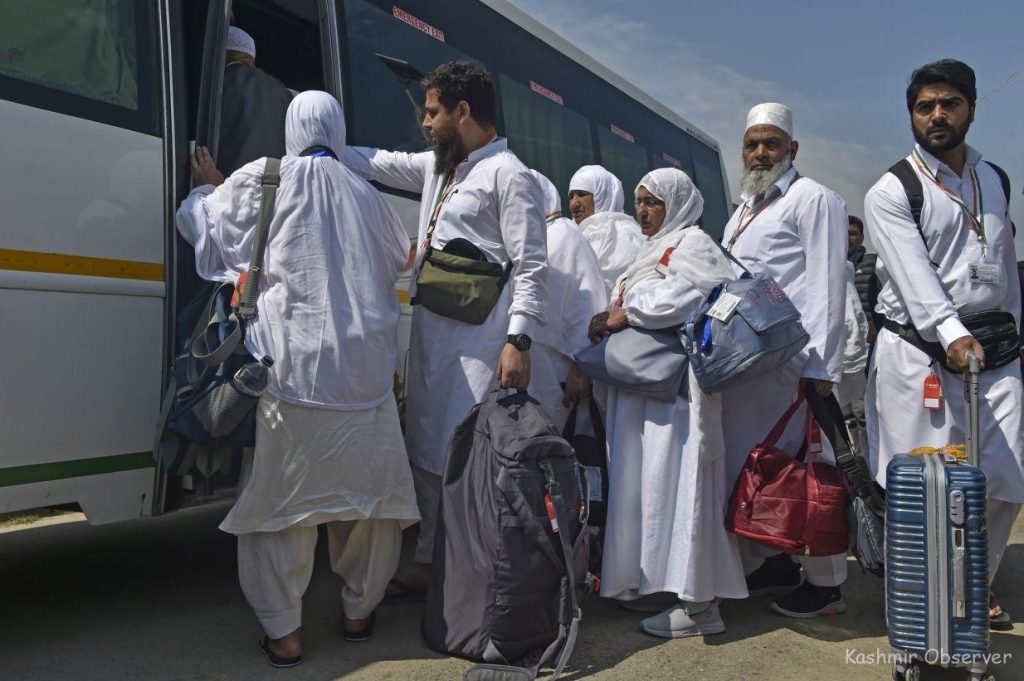Decline in Hajj applications exposes India’s claims of economic progress in IIOJK
 Srinagar: Despite BJP-led Indian government’s claims of an economic boom and development in Indian illegally occupied Jammu and Kashmir following the abrogation of Article 370 in 2019, a sharp decline in Hajj applications has laid bare the deepening economic struggles faced by Kashmiris.
Srinagar: Despite BJP-led Indian government’s claims of an economic boom and development in Indian illegally occupied Jammu and Kashmir following the abrogation of Article 370 in 2019, a sharp decline in Hajj applications has laid bare the deepening economic struggles faced by Kashmiris.
According to Kashmir Media Service, the significant drop in the number of pilgrims seeking to undertake the sacred journey highlights the growing financial hardships in IIOJK, directly contradicting New Delhi’s narrative of prosperity and progress in the territory.
For Hajj 2025, only 3,602 applications have been submitted so far—less than half of the 8,000 pilgrims originally expected. More than 700 applicants have opted out due to their inability to pay the required fees, while many others were unable to proceed after failing to meet financial requirements. The number of applications for the 2025 pilgrimage represents a staggering 55% decline from the previous year, which itself had witnessed a drop compared to previous years.
The situation starkly contrasts with the past when Hajj applications from IIOJK regularly exceeded the official quota. In 2017, over 35,000 people had applied, and even in 2018, the figure was around 32,000. But since 2019, the trend has been steadily declining, signaling the mounting financial strain on families in the territory.
Experts suggest that the economic difficulties faced by Kashmiris, exacerbated by rising inflation, high unemployment and an overall cost-of-living crisis, are compelling people to prioritize essential expenses like healthcare, education and family needs over the religious pilgrimage.
“The economic realities of daily life are forcing people to make tough choices. Hajj, once a cherished goal for many, is now being sidelined due to the harsh financial pressures people are facing,” said a local economist. “Despite government promises of prosperity post-abrogation, the ground situation tells a different story.”










